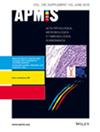Inhibition of miR-222-3p Alleviates Acute Pancreatitis by Negatively Regulating the Expression of SIRT1
Abstract
The aim of this study is to explore the correlation between the levels of miR-222-3p and the onset of acute pancreatitis (AP) and further verify the role of miR-222-3p in the pathogenesis of AP through targeted regulation of Sirtuin 1 (SIRT1). This study encompassed a total of 160 AP patients, including 80 patients with mild and moderate AP (non-SAP) and 80 patients with severe AP (SAP). The levels of miR-222-3p and SIRT1 were detected by reverse transcription quantitative polymerase chain reaction (RT-qPCR) technology, and the potential significance of miR-222-3p in the diagnosis of AP was evaluated by receiver operating characteristic curve. The proliferation activity of cerulein-induced HPDE6-C7 cells was investigated by Cell Counting Kit-8 method. Meanwhile, the changes in the levels of inflammatory factors were quantified using enzyme-linked immunosorbent assay (ELISA) kits. The result showed that miR-222-3p was elevated in AP patients, especially in SAP patients. Elevated miR-222-3p levels showed diagnostic significance for AP. Inhibiting miR-222-3p promoted the proliferation of cerulein-damaged HPDE6-C7 cells and reduced inflammatory factor increases induced by cerulein. SIRT1 inhibition reversed the effects of miR-222-3p on cerulein-induced HPDE6-C7 cells. Inhibition of miR-222-3p may alleviate the development of AP by targeting SIRT1.

 求助内容:
求助内容: 应助结果提醒方式:
应助结果提醒方式:


